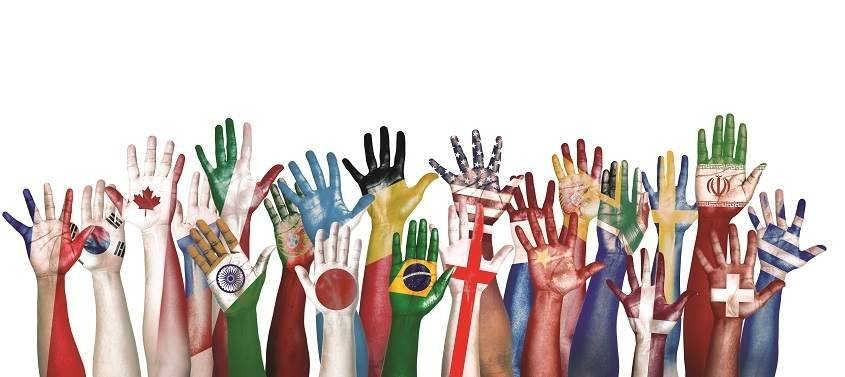 Matthew’s Questions to Madison: What have you learned about yourself and your culture (strengths and gaps) as you have engaged those in other cultures?
Matthew’s Questions to Madison: What have you learned about yourself and your culture (strengths and gaps) as you have engaged those in other cultures?
I’m fully Canadian (with proud German roots), and a millennial. I have been raised to behave a certain way with certain cultural expectations because of the country I live in and the generation I was born into.
But I don’t strive to stay stuck in those identifying factors – I want to learn from other generations and other cultures.
I have had the incredible opportunity to travel to Asia a couple times, live in Europe for a while, and tour around North America. Of all the places I’ve traveled, the places that are less like my culture have been my favourite. I was more intrigued with going to China and Thailand than I was England and Austria because they were vastly different from the world I was raised in.
In my short 23 years, I’ve learned things about myself, my culture, and my generation compared to other cultures and other generations. Want to hear a few of them? I may be off on some of them, but understanding culture and generation is something I will always be curious to learn about.
Let’s look at culture first:
1) North America is an overindulgent culture
This was something I kind of knew, but it didn’t hit home until living in Germany. The biggest complaint from the Germans was that the North Americans wouldn’t eat everything on their plate. We were known for taking too much food and throwing most of it out – when I changed my lens to theirs, I totally saw what they saw. And it’s goes beyond food. Do I dare mention Boxing Day, or Black Friday?
2) Independence has pros and cons
Compared to many Eastern countries, we are an independent culture. We live for ourselves more than for other people. This has served us well in terms of avoiding family shame – we don’t often feel the pressures of family and community expectations, since we share more of the message of ‘do you’. This has hurt us though too. I love communal cultures and their emphasis on the family unit and living in community. We’re a much lonelier culture because we aren’t ‘forced’ in community.
3) We communicate very differently
The best way I’ve heard it described is that Western thinking is linear and Eastern thinking is circular. Westerners communicate exactly what they think; Easterners want you to read behind what they’re saying. I worked with someone who was a circular communicator, and the entire time she talked, I would think to myself, “What is she really trying to communicate to me? Common Madi, read the air!” And it never worked. One way of communicating is not better than another, but it can cause miscommunication if we aren’t aware of the differences.
4) We live for affirmation
Another thing I learned in Germany was that North Americans do a whole lot of affirming. We affirm everything – including the things we don’t actually like. This drove the Germans up the wall! I appreciate the affirmative culture for the fact that we do want to encourage and lift one another up, but it’s a down fall when you can’t actually believe what someone says. Again, I don’t think this is a good or bad thing, but just a thing.
Let’s switch over to some of the differences I’ve observed between the millennial culture and the baby boomer culture.
1) Millenials are more interested in diversity
Research has come out that millenials are on the lookout for diversity – we appreciate it when we see it. In all honesty, we’re tired of gray-haired white men dominating the world. But I had an interesting conversation the other day with someone about it. She said, “Millennials may actually be more interested in the perception of diversity, rather than diversity itself.” Technically, everyone in the room could look the same but have very different perspectives, or everyone in the room could look different and yet have the same ideas. This has me thinking more about my own perceptions.
2) There’s less of a focus on family
Westerners compared to Easterners have less of a focus on family; millenials compared to baby boomers have less of a focus on family. Students leave home for school at a young age, get settled in a career, and call home less and less as time goes on. The focus on career and the focus on community is much higher than on family.
3) Millenials are bored sitting in one place for too long
Have you heard the term “wanderlust”? It’s a fad phrase in the millennial world. We’re all about travel and experiencing new things. We’re curious. It’s also about not sitting at the same desk for a long time – this can mean less of an emphasis on having a physical office space, or it can mean we have less grit and switch jobs often.
4) The desire for relationships is strong
In the church world, new research is out that millennials are more interested in relationships than production. Baby boomers, if you are leaders in church (paid or unpaid), take note of this. We want you to talk to us and have us over for dinner more than we want the fancy lights on stage. Take note though, we don’t always know how to do this well since we’ve grown up in an online culture. But we want it, and we may need the help of the baby boomers. Beyond the church, I’ve noticed that my generation has taken up more of an interest in local shopping rather than big box stores. I don’t know how much this translates across the entire generation, but it would make sense – we want relationships, and you get more of that at local places.
Those are a few thoughts from my limited experience and understanding, but it’s a topic I will always engage in – so if you think I’m off on my thinking, let’s chat (after all, I’m part of the generation that’s all about relationships).
